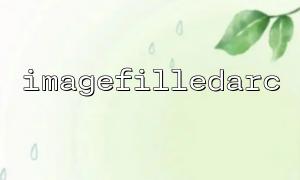When working with PHP's XML parsing capabilities, xml_set_default_handler is a highly useful function for setting a default callback handler to process any unmatched XML elements or text content during parsing. If your callback isn’t being triggered, there may be several possible causes. This article takes a detailed look at common reasons and provides appropriate solutions.
When using xml_set_default_handler, the callback function must adhere to PHP’s requirements for callback definitions. If the callback is not defined properly, PHP will ignore it, and it won’t be triggered. The callback should accept two parameters:
function defaultHandler($parser, $data) {
echo "Default handler triggered: " . htmlspecialchars($data) . "\n";
}
Where:
$parser is the XML parser resource.
$data is the text data not handled by other callbacks.
Make sure the callback has two parameters, and the first can be safely ignored if not used.
xml_set_default_handler only triggers when the XML contains content not handled by other callback functions. For instance, if you use xml_set_element_handler or xml_set_character_data_handler to define more specific handlers, xml_set_default_handler will only be triggered if neither of those handle the current content. If every element and data is processed by other handlers, the default one won’t be used.
Solution: Ensure there is content not handled by specific callbacks, or verify whether other handlers are mistakenly capturing that data.
If the XML data is malformed, the parser may exit early before reaching the point where xml_set_default_handler would be triggered. For instance, illegal characters or improperly formatted tags can cause the parser to fail. In such cases, xml_set_default_handler won’t execute.
Solution: Verify that the XML data is valid. You can use libxml_use_internal_errors(true) to enable internal error handling and capture parsing errors:
libxml_use_internal_errors(true);
$parser = xml_parser_create();
xml_set_default_handler($parser, 'defaultHandler');
If you attempt to register xml_set_default_handler before the parser is created or if registration is out of sequence, the handler may not be triggered. Make sure to register the callback before invoking xml_parse.
$parser = xml_parser_create();
xml_set_default_handler($parser, 'defaultHandler');
xml_parse($parser, $xmlData);
If the parser is inactive or already closed before or during the call to xml_parse, the xml_set_default_handler function may not be triggered. Always check the parser’s state and make sure all callbacks are set before invoking xml_parse.
Different PHP versions may support XML parsing differently, especially if compiled with alternative libraries. If the XML extension is disabled or outdated, xml_set_default_handler may not function correctly.
Solution: Verify the PHP version and check whether the XML extension is installed and enabled. Use phpinfo() to review relevant configuration settings.
If the xml_set_default_handler callback isn’t being triggered, the cause could be an incorrectly defined callback, registration order issues, XML formatting errors, or PHP configuration problems. Carefully checking each of these areas can help resolve the issue. Ensuring the callback is correctly defined, the XML is valid, and all handlers are registered at the right time will help you avoid this kind of problem.







